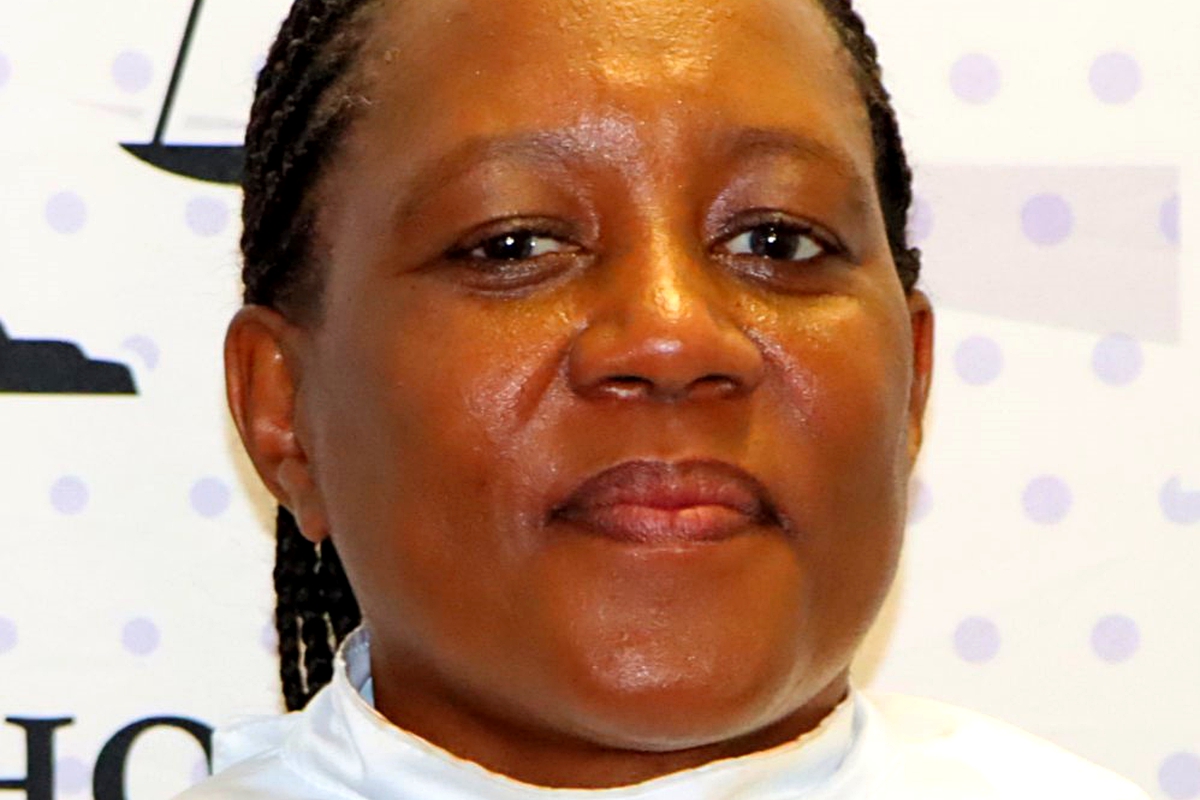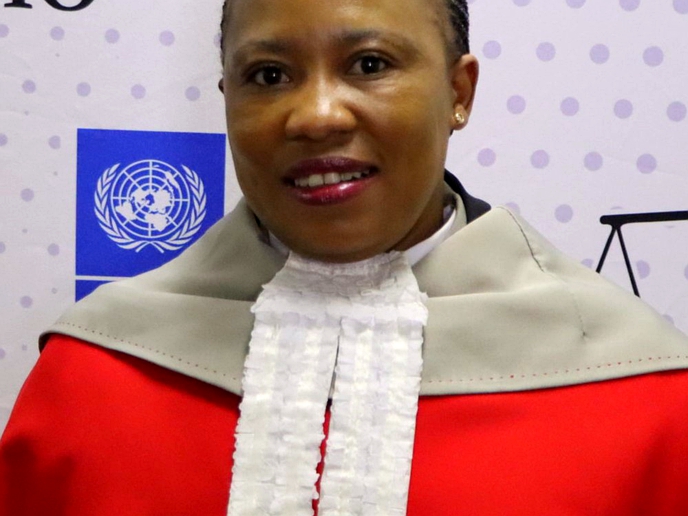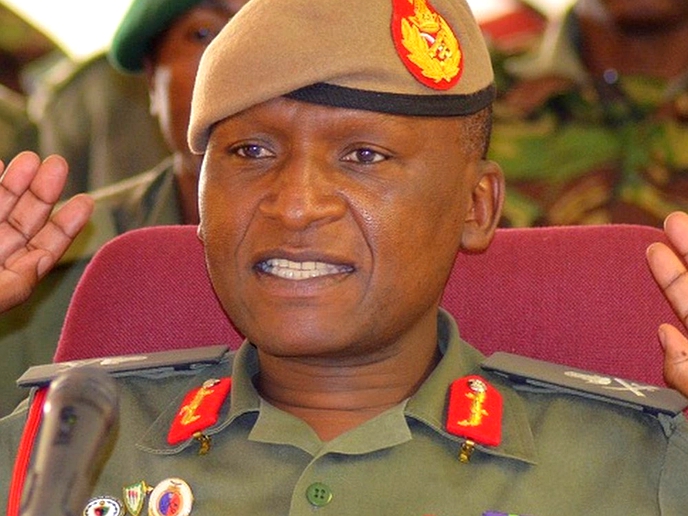THE refusal of High Court Judge Mabatšoeneg Hlaele to declare corporal punishment imposed on a group of nine soldiers detained at the Maseru Central Correctional Institute (MCCI) in December of last year as unconstitutional has sparked controversy.
news
March 15, 2024
RELEBOHILE TSOAMOTSE
4 min read
Corporal punishment row escalates in courts

Judge Mabatšoeneng Hlaele
Story highlights
This decision has now been challenged.
The judge's dismissal of a plea to hold the Commissioner of the Lesotho Correctional Service (LCS), along with the officer commanding the Maseru Correctional Service and their staff, accountable for inflicting corporal punishment on the inmates, has prompted further legal action.
The individuals subjected to torture are: Motsieloa Leutsoa, Marai ’Moleli, Nthatakane Motanyane, Tieho Tikiso, Sebilo Sebilo, Litekanyo Nyakane, Mahlomola Mokhoali, Mahlehle Moeletsi, and Liphapang Sefako.
In a court application filed by their relatives seeking the court’s intervention to hold the culprits accountable, Judge Hlaele declined to declare corporal punishment unconstitutional, stating that the evidence presented in support of the plea lacked coherence.
Judge Hlaele remarked that the circumstances leading to the inmates' injuries were not adequately presented to the court, rendering it unable to determine whether the unlawfulness stemmed from an irregularity.
While acknowledging that corporal punishment is still sanctioned by statutes, she emphasised that the specific factual foundation necessary for the case under her adjudication was absent from the evidence provided.
Relatives of the tortured soldiers have subsequently appealed her judgement on multiple grounds. They argue that Justice Hlaele erred in refusing to issue a declaratory order affirming that the conduct of LCS staff amounted to corporal punishment.
They contend that the evidence presented before Justice Hlaele indicated that the detainees were indeed subjected to physical beatings as a punitive measure.
Furthermore, the family members assert that Justice Hlaele's decision to grant an order allowing the detainees to consult medical professionals of their choice within the correctional institution was misguided.
They highlight the case of at least one appellant who suffered a broken limb requiring treatment beyond what the facility could offer. Directing them to be treated within the same facility, they argue, effectively meant leaving them untreated.
The relatives also point out that even the LCS did not oppose the detainees' access to medical services outside the prison facility.
“On the uncontroverted evidence of the applicants confirmed by the unsworn statement of the correctional service officer who had accompanied the applicants to court on the day they were produced before court pursuant to the court’s order, it was an established practice within the correctional facility to take inmates to surgeries of medical practitioners of their choice.”
On top of that, the complainants argue that Judge Hlaele granted an order that had not been sought by any party.
News of the tortured inmates sent shock waves around the country in December last year when it emerged that nine awaiting trial soldiers had been tortured and that family members and legal representatives were not allowed to visit them.
A court application was instituted to force the LCS management to allow family members and lawyers to access the detainees and ask that the assaulted detainees be taken for medical attention. At the time of the application, the complainants prayed that the tortured soldiers be brought before court to prove that they were indeed tortured.
Justice Hlaele granted the order, and the tortured inmates were brought before court on Christmas Eve, providing evidence of what had actually transpired and resulted in the injuries.
In her judgement, Judge Hlaele says that despite the fact that LCS was administering a legally authorised sanction (corporal punishment), the injuries sustained by the inmates are not consistent with how whipping envisaged in the execution of the sentence should be.
“My views are that as a legal sanction, it has reached its sell by date, it is barbaric and outdated.”
However, she said she was unable to outlaw corporal punishment because she was not sitting as a constitutional court.
Enjoy our daily newsletter from today
Access exclusive newsletters, along with previews of new media releases.
While she said the assaulted detainees medical records came in late to carefully consider, Justice Hlaele said they paint a picture that the injuries sustained are not life-threatening, giving her a sense of relief that the injuries are not permanent and life-threatening. “This is not to suggest or exonerate the officials; it is a mere sigh of relief that, medically, the injuries are healable.”
A commission of inquiry established to investigate the circumstances surrounding the torturing of the said inmates has yet to publicise its findings three months later. Law and Justice Minister Richard Ramoeletsi said the inquiry is necessary so as to get to the root cause of the problem and so that action be taken against the culprits.
Ramoeletsi undertook to implement recommendations that will be made by the inquiry so that similar events do not happen again in the future.
“On behalf of government, I am making a commitment that thorough investigations will be conducted through an independent commission of inquiry that will be established to get to the bottom of what transpired and the recommendations of the commission will be made public,” Ramoeletsi said at the time
He said the inmates sustained injuries as a result of an operation by LCS management to search for unauthorised items in the prison cells after six other inmates escaped from custody by using unauthorised items.
It was during the said operation that some of the inmates objected to the search operation, and a squabble emerged between them and prison officials, resulting in the injuries of some.
The Law Society of Lesotho has condemned the acts of torture as reported and called on the resignation of the commissioner of LCS. The lawyer’s body said the severity of the security breach and acts of violence demand a change in leadership to restore public trust and uphold principles of justice.”
According to society, there is a need to protect the rights of inmates, including soldiers awaiting trials, and that any form of violence, torture, or abuse against them is unacceptable, unethical, and illegal.
Tailored for you






